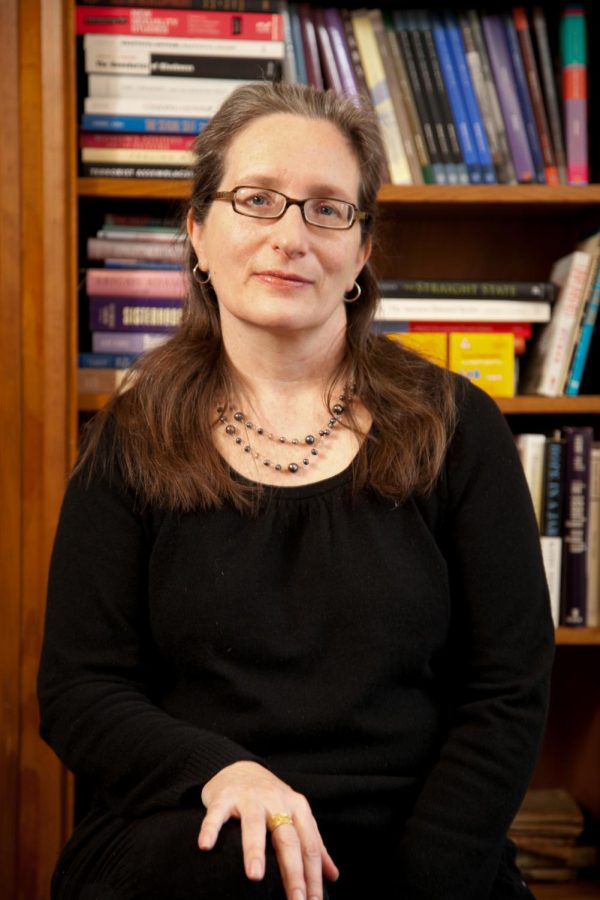Outgoing Director Amy Farrell Reflects on Work
Amy Farrell, professor of American studies and women’s, gender and sexuality studies, reflects on how the Forum has evolved to be more inclusive to different disciplines since its founding over 20 years ago as her tenure as executive director of the Clarke Forum ends.
“[The Clarke Forum] was initially founded as a center for the interdisciplinary study of contemporary issues…and I think that it has always been theoretically open to programming outside of policy studies and political science, but I think that we made that more explicit and clear,” Farrell said.
A typical tenure of a Clarke Forum executive director is three to five years and is always held by a Dickinson faculty member. March Aldrich, associate professor of Spanish, will hold the position starting in fall 2019.
Farrell sought to expand the interdisciplinary reach of the Forum’s events during her time as executive director. “I worked hard to reach out to the arts and humanities and to the sciences to make them understand that in terms of us thinking about contemporary issues and thinking about the future, the arts are as important as a policy maker,” she said.
The Clarke Forum, founded in 1994, is named after Trustee Henry Clarke, the forum’s chief benefactor. The Forum brings scholars, writers, artists and activists to campus through the use of lectures, seminars and conferences that “allow for dialogue and critical reflection,” according to the Clarke Forum’s website. The Clarke Forum employs a small team of student workers, who assist in the researching, designing, planning and producing aspects of each event.
Farrell began her tenure as executive director in fall 2015. She says she applied because she had “always really been interested in [the Clarke Forum] as a thought center.” Harry Pohlman, professor of political science, preceded Farrell as executive director. Farrell remarked that Pohlman had left the Clarke Forum in “very solid shape,” and that she was eager to continue “expanding and deepening” his work at the forum.
“I really worked hard to make the center…seem really active, and have more vibrancy,” Farrell said of her time as executive director. Farrell created a new forum for engaging in dialogues during her tenure. These “salons,” as they are called, are “places to have deep conversation among different groups of people,” she said. The salons are “based on our reading of different opinions about something controversial, or reading of a novel before or after the novelists came to visit,” Farrell said.
Farrell says she hopes to see the creation of a student advisory group to “get more students actively involved,” in the work of the forum. She also talked about building ways to expand the impact of the speakers that come to campus, and “carry on the work beyond a person who came here,” she said.
Farrell says she is most proud of her efforts to deepen the connections between the student workers at the Clarke Forum and the issues and speakers they work with. These efforts have paid off: “guests are extraordinarily impressed with the kinds of questions our students ask, and the depth of knowledge they have about their work,” Farrell remarked.





